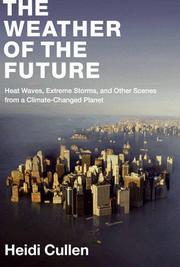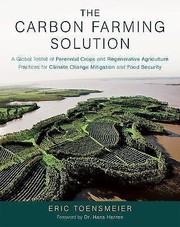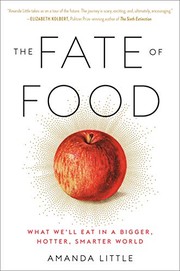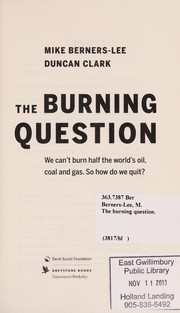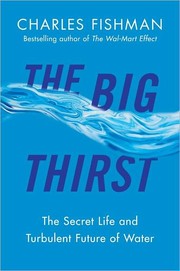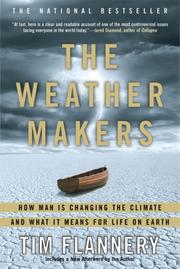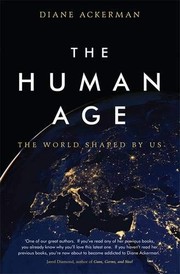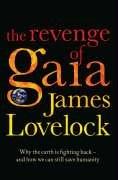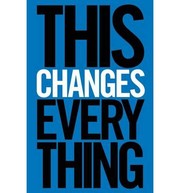Are you looking for the best books on climate to deepen your understanding of the pressing issues our planet faces? Look no further! Whether you’re an environmental enthusiast or simply curious about the current state of our world, these 20 books on climate will provide you with valuable insights, compelling narratives, and thought-provoking perspectives. From scientific analyses to personal reflections, these books cover a wide range of topics related to climate change, making them essential reads for anyone concerned about the future of our planet.
Contents
- 1 20 Best Books About Climate
- 2 The Uninhabitable Earth: Life After Warming
- 3 The Sixth Extinction: An Unnatural History
- 4 The Water Will Come: Rising Seas, Sinking Cities, and the Remaking of the Civilized World
- 5 The Great Derangement: Climate Change and the Unthinkable
- 6 The Madhouse Effect: How Climate Change Denial Is Threatening Our Planet, Destroying Our Politics, and Driving Us Crazy
- 7 The Weather of the Future: Heat Waves, Extreme Storms, and Other Scenes from a Climate-Changed Planet
- 8 The Carbon Farming Solution: A Global Toolkit of Perennial Crops and Regenerative Agriculture Practices for Climate Change Mitigation and Food Security
- 9 The Ends of the World: Volcanic Apocalypses, Lethal Oceans, and Our Quest to Understand Earth’s Past Mass Extinctions
- 10 The Great Transition: Shifting from Fossil Fuels to Solar and Wind Energy
- 11 The Fate of Food: What We’ll Eat in a Bigger, Hotter, Smarter World
- 12 The Burning Question: We Can’t Burn Half the World’s Oil, Coal, and Gas. So How Do We Quit?
- 13 The Hidden Life of Trees: What They Feel, How They Communicate—Discoveries from a Secret World
- 14 The Big Thirst: The Secret Life and Turbulent Future of Water
- 15 The Weather Makers: How Man Is Changing the Climate and What It Means for Life on Earth
- 16 The Human Age: The World Shaped by Us
- 17 The Sixth Extinction: Patterns of Life and the Future of Humankind
- 18 The Great Disruption: Why the Climate Crisis Will Bring On the End of Shopping and the Birth of a New World
- 19 The Revenge of Gaia: Earth’s Climate Crisis and the Fate of Humanity
- 20 This Changes Everything: Capitalism vs. The Climate
- 21 Climate of Hope: How Cities, Businesses, and Citizens Can Save the Planet
- 22 Conclusion
- 23
- 24 Explore 20 Best Alternate Realities Books with Our 2024 Update
- 25 Italy Travel Books: A Curated 2024 Updated List
- 26 Reading List of Quantum Physics Books – 2024 Update
20 Best Books About Climate
The Uninhabitable Earth: Life After Warming
by David Wallace-Wells
The Uninhabitable Earth: Life After Warming by David Wallace-Wells is a groundbreaking book on climate change that paints a vivid and terrifying picture of the future we face if we fail to take action. Wallace-Wells explores the catastrophic effects of global warming, from extreme weather events to food and water shortages, and the mass extinction of species. This climate book is a wake-up call, urging readers to confront the harsh realities of our warming planet and the urgent need for immediate and drastic change. Through a combination of scientific research and compelling storytelling, Wallace-Wells presents a compelling case for why we must prioritize climate action now to prevent a future that is truly uninhabitable.
The Sixth Extinction: An Unnatural History
by Elizabeth Kolbert
The Sixth Extinction: An Unnatural History by Elizabeth Kolbert is a captivating exploration of the impact of human activity on the Earth’s biodiversity. This groundbreaking book delves into the mass extinctions of species that have occurred throughout history, and the alarming rate at which species are disappearing today. Kolbert takes readers on a journey across the globe, from the rainforests of Panama to the Great Barrier Reef, to witness firsthand the devastating effects of climate change and human interference on the natural world. Through vivid storytelling and in-depth research, she paints a sobering picture of the current state of our planet and the urgent need for action. This book on climate is a wake-up call to humanity, shedding light on the interconnectedness of all life and the precarious balance of our ecosystems. The Sixth Extinction is a must-read for anyone passionate about the environment and the future of our planet.
The Water Will Come: Rising Seas, Sinking Cities, and the Remaking of the Civilized World
by Jeff Goodell
The Water Will Come by Jeff Goodell is a captivating book on climate change, delving into the imminent threat of rising sea levels and its impact on the world’s coastal cities. Goodell takes readers on a journey to the front lines of the climate crisis, exploring the vulnerability of cities like Miami, New York, and Venice to the encroaching waters. Through in-depth research and interviews with scientists, activists, and locals, the book paints a vivid picture of the potential future where coastlines are reshaped, economies are disrupted, and millions are displaced. Goodell’s compelling narrative and powerful storytelling make The Water Will Come a must-read for anyone concerned about the future of our planet in the face of this pressing climate challenge.
The Great Derangement: Climate Change and the Unthinkable
by Amitav Ghosh
The Great Derangement by Amitav Ghosh is a thought-provoking book about climate that challenges readers to confront the unsettling reality of our changing world. Ghosh explores the climate crisis through a unique lens, delving into the cultural and political implications of our collective failure to address this pressing issue. Through a blend of history, science, and personal reflection, Ghosh examines the ways in which climate change has been marginalized in literature and public discourse, making it ‘unthinkable’ in the truest sense. With compelling arguments and powerful prose, Ghosh urges us to break through the barriers of denial and complacency, and to confront the urgent need for action. The Great Derangement is a timely and essential read for anyone seeking a deeper understanding of the complex intersection between society and the natural world.
The Madhouse Effect: How Climate Change Denial Is Threatening Our Planet, Destroying Our Politics, and Driving Us Crazy
by Michael E. Mann and Tom Toles
The Madhouse Effect is a hard-hitting book on climate change denial, written by Michael E. Mann and Tom Toles. This powerful collaboration between a renowned climate scientist and a Pulitzer Prize-winning political cartoonist exposes the dangerous consequences of denying the reality of global warming. Through a combination of scientific evidence and biting political satire, the authors vividly illustrate how climate change denial is not only threatening our planet, but also undermining our political systems and driving society into a state of chaos. The Madhouse Effect is a wake-up call for readers to confront the truth about climate change and take action before it’s too late. This compelling book about climate is a must-read for anyone who cares about the future of our planet and the well-being of future generations.
The Weather of the Future: Heat Waves, Extreme Storms, and Other Scenes from a Climate-Changed Planet
by Heidi Cullen
The Weather of the Future: Heat Waves, Extreme Storms, and Other Scenes from a Climate-Changed Planet by Heidi Cullen is a compelling book about climate that explores the potential impacts of global warming on our planet. Through engaging storytelling and in-depth research, Cullen presents a vivid picture of the future, discussing the likelihood of more frequent heat waves, extreme storms, and other dramatic weather events. Drawing on her expertise as a renowned climatologist, she provides valuable insights into how these changes could affect ecosystems, economies, and human health. The book offers a thought-provoking look at the potential consequences of climate change and encourages readers to consider the urgent need for action. With its accessible writing and comprehensive analysis, The Weather of the Future is a must-read for anyone interested in understanding the complex and evolving dynamics of our book on climate.
The Carbon Farming Solution: A Global Toolkit of Perennial Crops and Regenerative Agriculture Practices for Climate Change Mitigation and Food Security
by Eric Toensmeier
The Carbon Farming Solution by Eric Toensmeier is a comprehensive guide for tackling the pressing issues of climate change and food security. This groundbreaking book on climate presents a global toolkit of perennial crops and regenerative agriculture practices that can mitigate the effects of climate change while ensuring sustainable food production. Toensmeier’s work offers practical solutions for farmers, land managers, and policymakers to implement regenerative agricultural practices that sequester carbon and reduce greenhouse gas emissions. By showcasing a diverse range of perennial crops and agroforestry systems, the book provides valuable insights into how sustainable agriculture can play a crucial role in addressing the challenges of a changing climate. The Carbon Farming Solution is an essential resource for anyone seeking to understand the intersection of agriculture and climate change and to be part of the solution.
The Ends of the World: Volcanic Apocalypses, Lethal Oceans, and Our Quest to Understand Earth’s Past Mass Extinctions
by Peter Brannen
The Ends of the World by Peter Brannen is a captivating book about the Earth’s tumultuous history of mass extinctions. Brannen takes readers on a thrilling journey through volcanic apocalypses, lethal oceans, and the quest to understand Earth’s past catastrophic events. With his engaging storytelling and meticulous research, Brannen explores the connections between past mass extinctions and the current climate crisis, offering valuable insights into the Earth’s future. This climate book provides a fascinating and thought-provoking look at the Earth’s history, making it a must-read for anyone interested in understanding the planet’s past and the potential impact on its future.
The Great Transition: Shifting from Fossil Fuels to Solar and Wind Energy
by Lester R. Brown
The Great Transition: Shifting from Fossil Fuels to Solar and Wind Energy by Lester R. Brown is a groundbreaking book on the urgent need to shift from fossil fuels to renewable energy sources. Brown delves into the critical issue of climate change and its impacts on our planet, offering a compelling argument for transitioning to solar and wind energy. Through a comprehensive analysis of the current energy landscape and the potential of renewable resources, Brown presents a hopeful vision for a sustainable future. This climate book provides readers with a clear understanding of the challenges and opportunities associated with transitioning to clean energy, making it a must-read for anyone concerned about the future of our planet.
The Fate of Food: What We’ll Eat in a Bigger, Hotter, Smarter World
by Amanda Little
The Fate of Food: What We’ll Eat in a Bigger, Hotter, Smarter World by Amanda Little is a compelling exploration of the future of our food in a changing world. This thought-provoking book on climate examines the impact of climate change, technology, and population growth on the global food system. Little takes readers on a journey around the world to meet innovators and pioneers who are developing new solutions to feed a growing population in an increasingly challenging climate. The book about climate offers a mix of investigative journalism, personal stories, and scientific research to paint a comprehensive picture of the challenges and opportunities facing the future of food. Little’s engaging storytelling and in-depth analysis make this climate book a must-read for anyone interested in the intersection of food, technology, and sustainability.
The Burning Question: We Can’t Burn Half the World’s Oil, Coal, and Gas. So How Do We Quit?
by Mike Berners-Lee and Duncan Clark
The Burning Question: We Can’t Burn Half the World’s Oil, Coal, and Gas. So How Do We Quit? by Mike Berners-Lee and Duncan Clark is a thought-provoking book about climate change and the urgent need to transition away from fossil fuels. The authors explore the dilemma of how to address the climate crisis while still meeting the world’s energy needs. They provide a comprehensive analysis of the environmental, social, and economic implications of continuing to rely on oil, coal, and gas, and offer potential solutions for a sustainable future. This climate book challenges readers to confront the reality of our current energy consumption and inspires them to consider alternative pathways towards a greener, more sustainable world. The Burning Question is a must-read for anyone interested in understanding the complexities of climate change and the critical choices facing society today.
The Hidden Life of Trees: What They Feel, How They Communicate—Discoveries from a Secret World
by Peter Wohlleben
The Hidden Life of Trees: What They Feel, How They Communicate—Discoveries from a Secret World by Peter Wohlleben is a fascinating exploration of the intricate world of trees. Wohlleben, a forester, reveals the surprising ways in which trees communicate, support each other, and even feel pain. This captivating book delves into the complex network of roots and fungi that connect trees, allowing them to share nutrients and information. Wohlleben’s insights shed light on the interconnectedness of the natural world and the profound intelligence of trees. As a climate book, it also highlights the vital role that trees play in maintaining the health of our planet and offers a new perspective on the importance of preserving and nurturing forests. Through engaging storytelling and scientific research, Wohlleben’s work will forever change the way you see the hidden life of trees.
The Big Thirst: The Secret Life and Turbulent Future of Water
by Charles Fishman
The Big Thirst by Charles Fishman is an eye-opening book about the intricate world of water and its impact on the planet’s future. Fishman delves into the complexities of water management and the challenges we face in ensuring a sustainable water supply. Through captivating stories and extensive research, he explores the global water crisis and the innovative solutions being developed to address it. This insightful climate book provides a thought-provoking perspective on the importance of water conservation and the potential consequences of neglecting this precious resource. Fishman’s engaging writing style and compelling narrative make The Big Thirst a must-read for anyone interested in understanding the intricate relationship between water and the environment.
The Weather Makers: How Man Is Changing the Climate and What It Means for Life on Earth
by Tim Flannery
The Weather Makers: How Man Is Changing the Climate and What It Means for Life on Earth by Tim Flannery is a groundbreaking book on climate change. Flannery, a leading environmentalist, explores the impact of human activity on the earth’s atmosphere and the consequences for the planet’s ecosystems. He delves into the science of climate change, the history of human influence on the climate, and the potential future scenarios. The book presents a compelling argument for urgent action to address the challenges of global warming and offers insights into potential solutions. Flannery’s accessible writing style and in-depth research make The Weather Makers a must-read for anyone interested in the environment, climate science, and the future of our planet.
The Human Age: The World Shaped by Us
by Diane Ackerman
The Human Age: The World Shaped by Us by Diane Ackerman is a fascinating exploration of the impact humans have had on the planet, from the Stone Age to the present day. Ackerman delves into the ways in which human civilization has shaped the earth, from climate change to species extinction. This thought-provoking book on climate offers a unique perspective on our relationship with the natural world, and encourages readers to consider the consequences of our actions. Through vivid storytelling and meticulous research, Ackerman paints a vivid picture of the Anthropocene era, in which humans are the dominant force shaping the planet. The Human Age is a compelling and timely read that will leave readers with a deeper understanding of our impact on the environment and the urgent need for sustainable solutions.
The Sixth Extinction: Patterns of Life and the Future of Humankind
by Richard E. Leakey and Roger Lewin
The Sixth Extinction: Patterns of Life and the Future of Humankind, co-authored by Richard E. Leakey and Roger Lewin, is an eye-opening book about the devastating impact of human activities on the Earth’s biodiversity. This climate book delves into the alarming rate at which species are disappearing, drawing on evidence from the past five mass extinctions to paint a sobering picture of the current state of our planet. Leakey and Lewin explore the interconnectedness of all life on Earth and the ways in which human actions are driving countless species to extinction. However, the book also offers a glimmer of hope, discussing potential solutions and the role that individuals and societies can play in mitigating the impact of climate change. The Sixth Extinction is a compelling and urgent call to action, urging readers to confront the reality of our planet’s changing climate and take steps to preserve the diversity of life on Earth.
The Great Disruption: Why the Climate Crisis Will Bring On the End of Shopping and the Birth of a New World
by Paul Gilding
The Great Disruption: Why the Climate Crisis Will Bring On the End of Shopping and the Birth of a New World by Paul Gilding is a thought-provoking book about the impending environmental crisis. Gilding argues that the climate crisis will force humanity to rethink its consumerist ways and usher in a new era of sustainability and cooperation. He predicts that the current economic and social systems will be disrupted, leading to a fundamental shift in the way we live and interact with the planet. The book offers a compelling and urgent call to action, urging readers to confront the reality of climate change and work towards creating a more resilient and equitable world. Gilding’s insights and analysis make this book a must-read for anyone concerned about the future of our planet and the impact of climate change on our lives.
The Revenge of Gaia: Earth’s Climate Crisis and the Fate of Humanity
by James Lovelock
The Revenge of Gaia: Earth’s Climate Crisis and the Fate of Humanity by James Lovelock is a thought-provoking book on climate that explores the interconnectedness of the Earth’s systems and the impact of human activity on the planet. Lovelock, a renowned scientist and environmentalist, presents a compelling argument for the urgent need to address the climate crisis and its potential consequences for humanity. Drawing on his extensive research and expertise, he offers a sobering assessment of the current state of the planet and provides insightful perspectives on the possible future scenarios. The climate book challenges readers to confront the reality of climate change and consider the implications for the future of life on Earth. With its accessible writing style and compelling narrative, The Revenge of Gaia is a must-read for anyone interested in understanding the complex dynamics of our planet’s climate.
This Changes Everything: Capitalism vs. The Climate
by Naomi Klein
This Changes Everything: Capitalism vs. The Climate by Naomi Klein is a thought-provoking book about the urgent need for addressing the environmental crisis. Klein argues that the current economic system is incompatible with a sustainable future, and that we must challenge the power dynamics that perpetuate climate change. Through a combination of research and interviews, she explores the interconnectedness of climate change and capitalism, and offers a compelling case for reimagining our society and economy. This climate book challenges readers to question the status quo and consider alternative solutions for a more equitable and sustainable world. It is a must-read for anyone interested in understanding the complex relationship between our economic system and the environment, and for those seeking inspiration to create positive change.
Climate of Hope: How Cities, Businesses, and Citizens Can Save the Planet
by Michael Bloomberg and Carl Pope
Climate of Hope: How Cities, Businesses, and Citizens Can Save the Planet is a compelling book on climate co-authored by Michael Bloomberg and Carl Pope. This insightful book about climate change offers a refreshing perspective on the urgent issue of environmental sustainability. Bloomberg and Pope present a hopeful narrative, highlighting the significant role that cities, businesses, and individuals can play in addressing the challenges of a changing climate. Through their expertise and experience, the authors provide practical solutions and innovative strategies for combating climate change. The book emphasizes the power of collective action and the potential for positive change, offering inspiration to readers to become part of the solution. Climate of Hope is a must-read for anyone seeking a constructive and optimistic approach to the pressing global issue of climate change.
Conclusion
Climate change is one of the most pressing issues of our time, and these 20 best books about climate offer insightful and thought-provoking perspectives on the subject. From scientific analysis to personal narratives, these books provide a comprehensive understanding of the challenges and opportunities we face in addressing climate change. Whether you’re looking for practical solutions or simply seeking to deepen your knowledge, these books are essential reads for anyone concerned about the future of our planet.
Which Climate book is best?
The best book on Climate can vary with personal preference, but three widely recommended titles are:
- The Uninhabitable Earth: Life After Warming by David Wallace-Wells,
- The Sixth Extinction: An Unnatural History by Elizabeth Kolbert,
- The Water Will Come: Rising Seas, Sinking Cities, and the Remaking of the Civilized World by Jeff Goodell.
Each offers valuable insights and could be a great starting point.
What are the best books to learn about Climate?
For those looking to learn about Climate, there is a wealth of literature that can provide a comprehensive understanding of the subject. Some of the most highly recommended books include:
- The Uninhabitable Earth: Life After Warming by David Wallace-Wells,
- The Sixth Extinction: An Unnatural History by Elizabeth Kolbert,
- The Water Will Come: Rising Seas, Sinking Cities, and the Remaking of the Civilized World by Jeff Goodell,
- The Great Derangement: Climate Change and the Unthinkable by Amitav Ghosh,
- The Madhouse Effect: How Climate Change Denial Is Threatening Our Planet, Destroying Our Politics, and Driving Us Crazy by Michael E. Mann and Tom Toles,
- The Weather of the Future: Heat Waves, Extreme Storms, and Other Scenes from a Climate-Changed Planet by Heidi Cullen,
- The Carbon Farming Solution: A Global Toolkit of Perennial Crops and Regenerative Agriculture Practices for Climate Change Mitigation and Food Security by Eric Toensmeier,
- The Ends of the World: Volcanic Apocalypses, Lethal Oceans, and Our Quest to Understand Earth’s Past Mass Extinctions by Peter Brannen,
- The Great Transition: Shifting from Fossil Fuels to Solar and Wind Energy by Lester R. Brown,
- The Fate of Food: What We’ll Eat in a Bigger, Hotter, Smarter World by Amanda Little
These books offer a range of perspectives on Climate, covering various aspects and approaches to the subject.
What are the best books on Climate?
The best books on Climate include:
- The Uninhabitable Earth: Life After Warming by David Wallace-Wells,
- The Sixth Extinction: An Unnatural History by Elizabeth Kolbert,
- The Burning Question: We Can’t Burn Half the World’s Oil, Coal, and Gas. So How Do We Quit? by Mike Berners-Lee and Duncan Clark,
- The Hidden Life of Trees: What They Feel, How They Communicate—Discoveries from a Secret World by Peter Wohlleben,
- The Ends of the World: Volcanic Apocalypses, Lethal Oceans, and Our Quest to Understand Earth’s Past Mass Extinctions by Peter Brannen,
- The Weather of the Future: Heat Waves, Extreme Storms, and Other Scenes from a Climate-Changed Planet by Heidi Cullen.
Each offers unique insights into the subject. While these books on the topic of Climate are highly regarded, it’s important to note that any list of ‘best’ books is subjective and reflects a range of opinions.
What are the best Climate books of all time?
Choosing the best Climate books of all time can vary depending on who you ask, but seven titles that are often celebrated include
- The Uninhabitable Earth: Life After Warming by David Wallace-Wells,
- The Sixth Extinction: An Unnatural History by Elizabeth Kolbert,
- The Madhouse Effect: How Climate Change Denial Is Threatening Our Planet, Destroying Our Politics, and Driving Us Crazy by Michael E. Mann and Tom Toles,
- The Ends of the World: Volcanic Apocalypses, Lethal Oceans, and Our Quest to Understand Earth’s Past Mass Extinctions by Peter Brannen,
- The Fate of Food: What We’ll Eat in a Bigger, Hotter, Smarter World by Amanda Little,
- The Hidden Life of Trees: What They Feel, How They Communicate—Discoveries from a Secret World by Peter Wohlleben,
- and The Burning Question: We Can’t Burn Half the World’s Oil, Coal, and Gas. So How Do We Quit? by Mike Berners-Lee and Duncan Clark.
Each of these books has made a significant impact in the field of Climate and continues to be influential today.






